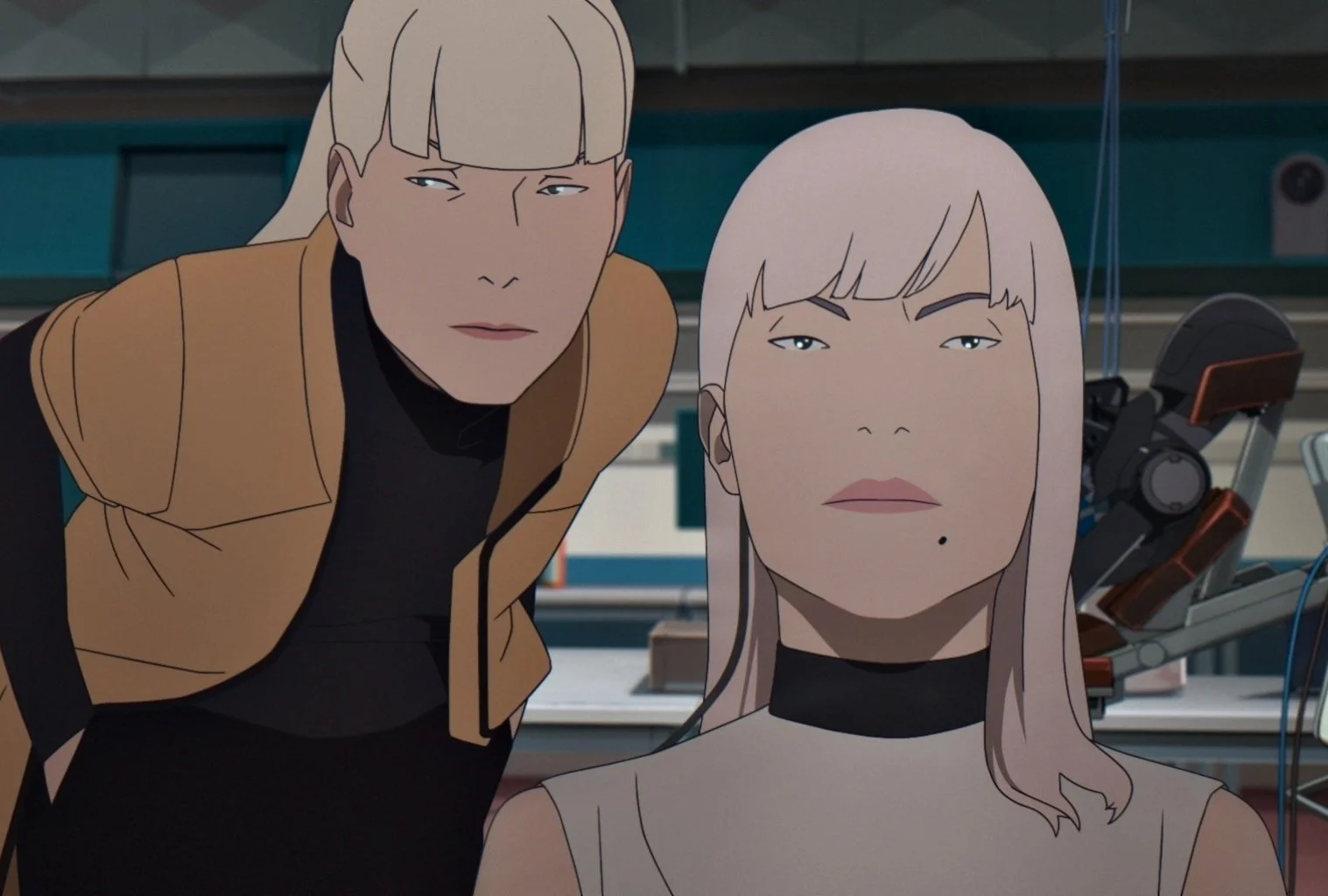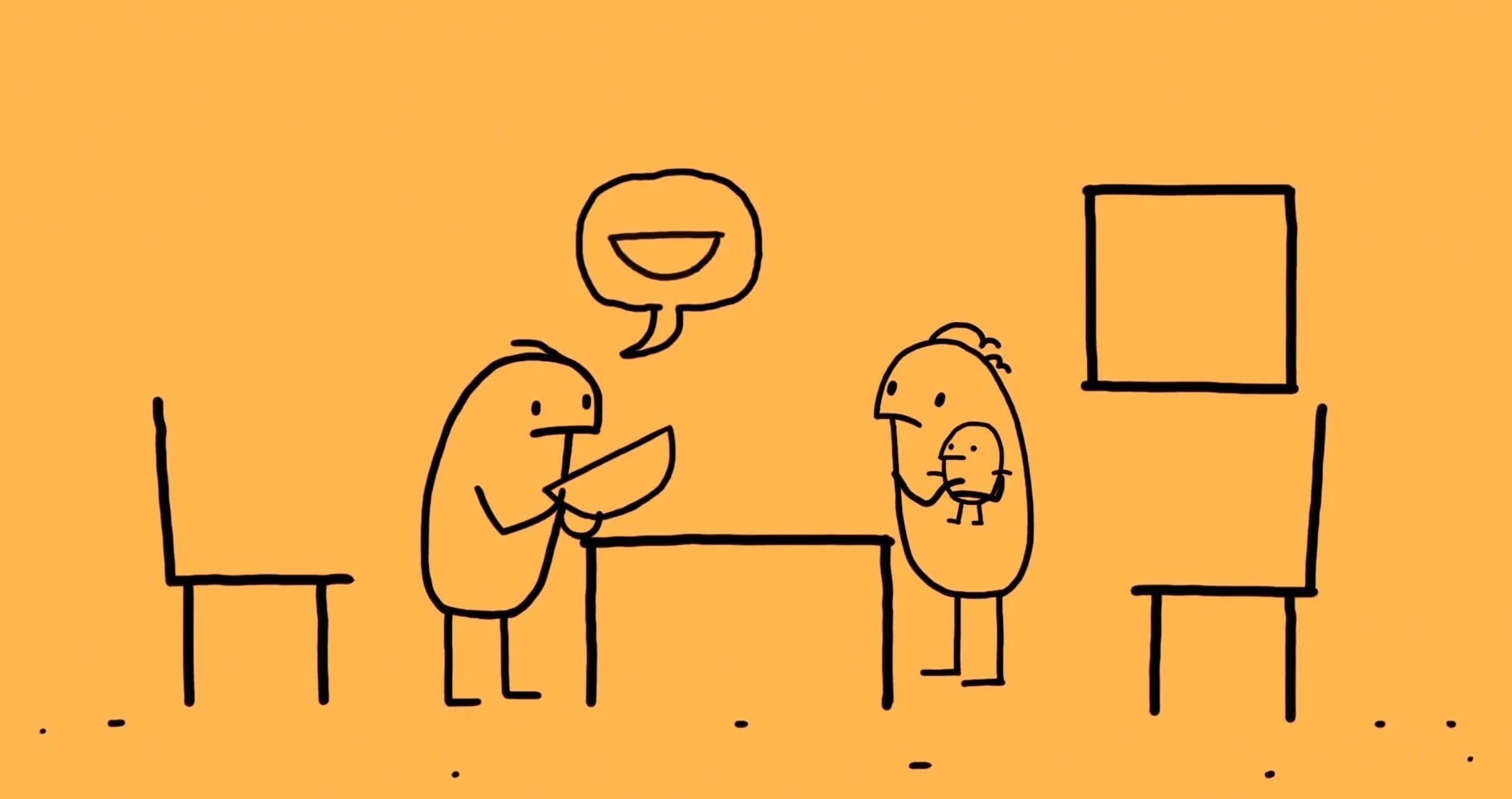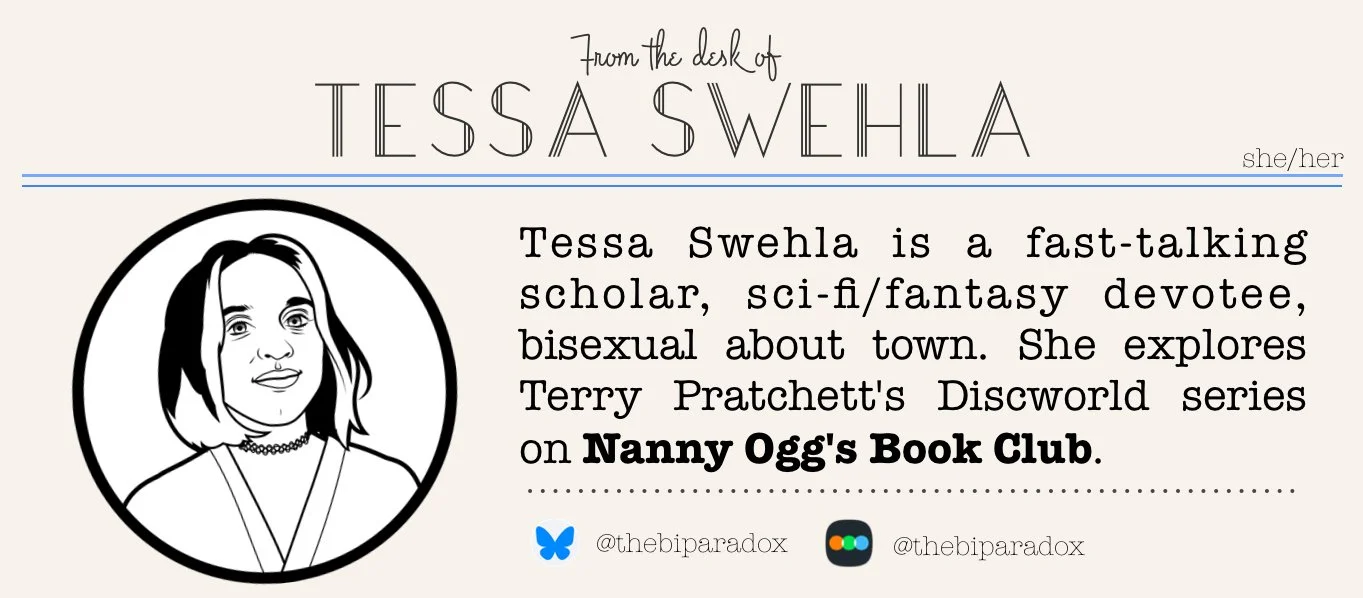Best of 2024: The 15 best science fiction movies of the year
by Tessa Swehla, Associate Editor
2024 has been a rich year for science fiction, both in film and in print. Several well-known franchises had prominent entries (Dune: Part Two, Kingdom of the Planet of the Apes, Alien: Romulus), but there were some startlingly good low budget indie productions as well (The Becomers, Omni Loop). There was some great action science fiction (Badland Hunters, Furiosa), but a new subset of thinky AI stories emerged with new questions about what the purpose of AI shortcuts are and what humans give up when we rely on them too much. Plus, France had a great year (The Beast, Mars Express, The Animal Kingdom).
Six of the 14 films below are animated–which officially makes this a stealth best of 2024 animation list as well–and three of them contain no dialogue at all. It’s truly a diverse list, although I wish I could include more African films. There is some great science fiction being made in Nigeria especially, but I usually end up seeing them later than the year of their release, so if anyone has a good screener hookup for those, let me know.
So here, in alphabetical order, is my best of 2024 sci-fi list.
Alien: Romulus (dir. Fede Álvarez)
This most recent entry into one of my favorite franchises is, perhaps rightly, criticized for its numerous references and callbacks to previous films. However, despite an incredibly badly CGI’d and in poor taste Ian Holm appearance, this film was one of the first entries since Aliens to dazzle me with its visual storytelling to the point where I could ignore its weaknesses. Álvarez knows how to make a movie, and the inclusion of the sibling/found family element for the three pairs of characters at the center of the film adds a dimension to the classic xenomorphs running amok on a space station plot that I haven’t seen in the other films. Plus, Álvarez understands like no other Alien director that the facehuggers are the true horror of the films: they have too many damned knuckles!
The Beast (dir. Bertrand Bonello)
The Beast belongs to that new subgenre of films that began to emerge this year to interrogate the role of AI in human society. Of course, AI isn’t a new subject for sci-fi, but because the definition and role of AI is changing in US society–large language models (LLMs) are seemingly everywhere now, whether we want them or not–many filmmakers are starting to ask new questions. Instead of asking “what happens if AI takes over the world and tries to annihilate humanity,” these films ask, “what are we giving up when we use AI to shortcut certain human experiences or emotions? Are those experiences and emotions part of what makes us human?” The Beast tackles these questions through the memories of the main character (Gabrielle, played by Léa Sedoux) as she, with the help of AI, attempts to confront trauma from her previous lives.
The Becomers (dir. Zach Clark)
The Becomers actually made my watchlist after reading MovieJawn Staff Writer Sasha Ravitch’s insightful review. One of the best low budget indies I’ve seen this year, the film is a body-snatchers movie that is told from the perspective of the body-snatchers, “a film by others, for others.” In an interview with MJ’s Sasha, director Zach Clark described his influences as Star Trek: The Original Series and classic science fiction. This influence extends to the phenomenal sound design and score (composed by Fritz Myers) which leans into dissonant, harsh noise and electronics in a way I haven’t really heard much of since pre-John Williams’ Star Wars (1977).
Flow (Gints Zilbalodis)
The only intentional spoilers I allow myself before viewing a film is if there is any animal violence: I’m here to tell you that Flow, a dialogue-free animated film about a scrappy group of animals trying to survive an ecological disaster, contains animal peril but nothing too traumatic. I’ve never seen anything quite like the animation style of Flow, which was rendered on the open-source software Blender, and I found the way that the animals acted and communicated like their real life counterparts to be delightful (Look, I love a cat in a movie). The ways in which climate disasters have and will affect the non-human residents of our planet are often terrible to think about, but this film has a lot of hope for new ecosystems developing from the wreckage. Perhaps, if these animals can adapt and build a community, we can too.
Furiosa: A Mad Max Saga (dir. George Miller)
It’s difficult to overemphasize the impact that Mad Max: Fury Road had on pop culture generally and sci-fi specifically. I admit to underestimating this film on first watch, thinking that it was overshadowed by its predecessor. But on the second watch, I realized what a masterpiece Furiosa: A Mad Max Saga truly is. George Miller doesn’t rest on his laurels; he makes exactly the film he wants to make, constantly pushing the boundaries of what can be done in this weird little Australian apocalypse world he has created. If Fury Road is the ultimate sci-fi action film, then Furiosa is the ultimate sci-fi melodrama, albeit one with a ton of great action (they fly now!). Anya Taylor-Joy is, of course, marvelous as the survivalist Furiosa, but don’t sleep on Chris Hemsworth’s career-best performance as Dementus, an absolutely incompetent warlord who makes up for it with charisma and deranged ruthlessness. A truly inspired entry into the Mad Max franchise.
I.S.S. (dir. Gabriela Cowperthwaite)
I.S.S. is one of those January films that snuck past audiences due to lack of promotion, but I was captivated for each of the 90 minutes of its runtime. Basically an extended Twilight Zone episode, the entire film takes place aboard the International Space Station for which it is named and is full of claustrophobic paranoia, survivalism, and heartstopping thrills. I’m ready for the Ariana DeBose action era!
Kingdom of the Planet of the Apes (dir. Wes Ball)
The Planet of the Apes is one of those franchises that have little to no visible fan base online, but moviegoers consistently show up to see these films: Kingdom of the Planet of the Apes topped the box office on its release weekend, making $58.4 million. When my roommates and I told a local Wawa clerk that we were on our way to see it, he responded with his best “Ape alone weak…Ape together strong” Caesar impression. This latest entry from Wes Ball cleverly jumps ahead in the Apes timeline a few hundred years from the Dawn/Rise/War trilogy, and, yet, there is better character establishment and development in the opening 10 minutes than there is in any other film on this list. Add in a Roman Empire-obsessed villain (Proximus, played by Kevin Durand), an ape clan dedicated to the art of falconry, and a human ally whose motivations are uncertain (Nova, played by Freya Allen), and you have a film that will captivate from start to finish.
Mars Express (dir. Jérémie Périn)
I knew that Mars Express would be a favorite of the year as soon as I saw the trailer: a throwback noir led by a woman in a cyberpunk society on Mars? With stunning animation? A hypnotic and dreamy score? Sign me up. I wasn’t expecting the more philosophical elements to be so grounded in human drama: the film balances its interrogation of human invention and treatment of the other and complex questions about consciousness with the pragmatism and emotional heft of real life choices.
ME (Don Herzfeldt)
ME was my first ever Don Herzfeldt film, and, like Furiosa, I had to watch the 22-minute short film twice in order to fully appreciate it. The first viewing, at the Chicago Critics Film Festival, left me awed at the offbeat but complex storytelling through the simple stick figure animation and jazz and classical score–like Flow and Robot Dreams, ME has no dialogue–but what Herzfeldt was getting at in the film escaped me. The second viewing–at Cinema Moderne, a tiny, indie theater in Montreal–completely floored me in its representation of the narcissism of our current technological trends and the almost biological need for humanity to retreat into itself. I won’t say more about ME, but I will say that I watched several other Herzfeldt short films this year, and I am now a devout fan.
Omni Loop (dir. Bernardo Britto)
But most of all, Omni Loop is about the grief one has for all of the lives one could have led, brought into sharp focus by the knowledge of impending death. It would be easy for this film to boil Zoya’s desire to go back to relive the last 30 or 40 years as regret, but neither the film nor the character can be reduced that simply. What really makes this work is Parker’s performance: she is able to capture the complex, multi-faceted nature of Zoya’s pain, joy, rage, and fear as she engages with the meaning of her life here at the end. Edibiri, who is playing a Millennial, brings her characteristic charm and natural sense of comedy to the role, but Paula is also someone who is struggling with what her life means, especially in the face of this revelation that time travel is possible. Their relationship, in many ways, is one of generational discourse about feminism, meaning, and friendship, and what generations of women can learn from one another.
A Quiet Place: Day One (dir. Michael Sarnoski)
I’ve been a fan of the A Quiet Place series since the first film in 2018, but I wasn’t expecting the third entry (technically the first chronologically) to blow me away so completely. Part of this is due to the incredible acting by Lupita Nyong’o (Sam) as a terminally ill woman who suddenly finds herself in the middle of an apocalypse. Because her motivation isn’t survival (she knows that she is going to die one way or another), Sam–and the real star of the film, her cat Frodo–get to ask more interesting questions of the end of the world than most films of this genre.What does hope look like in the face of personal and global annihilation? Combined with fantastic creature horror and intense escape sequences, this is a film I will be thinking about for a long time.
Robot Dreams (dir. Pablo Berger)
Robot Dreams is the third animated film on this list with no dialogue, proving that you don’t need speech to tell a story. It’s a seemingly straightforward tale about the relationship between a dog (most of the characters in this film are anthropomorphized animal characters, reminiscent of Bojack Horseman or Tuca and Bertie) and his newly acquired robot companion. As the film progresses, the relationship encounters obstacles, and the narrative has a lot to say about the disposability of objects and the way relationships change over time. However, I found the most charming parts of the film to be in the smaller moments: an entire short film involving the friendship of the robot with a family of birds that nest inside him, the Wizard of Oz Technicolor dreams he has while waiting for the return of his dog friend, the frequent, but strategic use of Earth, Wind, & Fire’s “September.”
Transformers One (dir. Josh Cooley)
There has been a lot of innovative animated sci-fi on this list so far, but sometimes, a more traditional narrative can accomplish great things. I admit to not being a Transformers aficionado or particularly ready for a lore heavy origin story, but I do really enjoy the bizarre and metal 1986 animated film. Transformers One is a high budget blockbuster style film despite the animation, but it is also a deeply complex story about friendship torn apart by ideology (for those who know: Magneto > Megatron and Optimus Prime > Professor X) and about community building during a revolution. It’s also the most blatantly Marxist film of the year, which is surprising considering that it was released by one of the big studios. It’s a top tier Transformers film, but it is also accessible to anyone who enjoys sci-fi or animation.
Wallace and Gromit: Vengeance Most Fowl (dir. Nick Park, Merlin Crossingham)
While earlier entries were more focused on character development and gentle ribbing of British social norms, Vengeance Most Fowl’s aim is more pointed. The surface critique is obvious—one can never know how technology will be used by other people, but Park and Crossingham also want to discuss the role of “AI” in art. Wallace has always wanted to invent ways to shortcut basic household tasks—getting up in the morning has always been an increasingly elaborate process in the WG household—but his mania for invention is out of control in this film. He’s impatient with life, looking for ways to offload any kind of labor onto technology without considering the purpose of what that labor might be. This includes giving Gromit, one of film’s goodest boys, pets, physical affection that Gromit clearly longs for from his friend, not a robot. Gromit, an established gardener, watches in horror as Norbot destroys his lovely, quaint retreat in favor of a bland, generic landscaping piece, declaring it “neat and tidy!” Neither Norbot, nor Wallace, understand what makes Gromit’s organic and messy garden beautiful or why gardening itself is an enjoyable act for him. Gromit finds peace and purpose in the often monotonous and tedious act of creation—a type of creation not unlike the process of stop motion animation itself.
The Wild Robot (dir. Chris Sanders)
I noted back in June after seeing Inside Out 2 that there seems to be a genre of animated films marketed for children that are actually for adults about their childhood ordeals and trauma (stop making me talk about your movies in therapy, Pixar). In some ways, The Wild Robot also exists in that space: Roz’s slow realization of her identity as one of multiplicity—mother, robot, friend, leader, a person in a community—is an adult realization and probably will speak the most poignantly to the mothers in the audience. But there is plenty here for children too, both in the hilarious hijinks of the animal characters and the compelling story of Bright Bill’s difference from the other geese as he has to adapt to new ways of survival. It’s a difficult line for many children’s films to walk—entertaining both children and adults—but The Wild Robot walks it well, most likely due to the fact that its middle grade source material allows it to be more nuanced than your average children’s film.
Retrospective 4K Disc Release: Ghost in the Shell 2: Innocence (dir. Mamoru Oshii)
I got to see the US premiere of the 4K remaster of this film at the Chicago Critics Film Festival back in May. While the first movie is the better film, Ghost in the Shell 2 is much weirder and shaggier, much more interested in the unanswerability of the questions of consciousness. Oshii and Toho’s animation is incredible, and the 4K allows it to really shine.



















